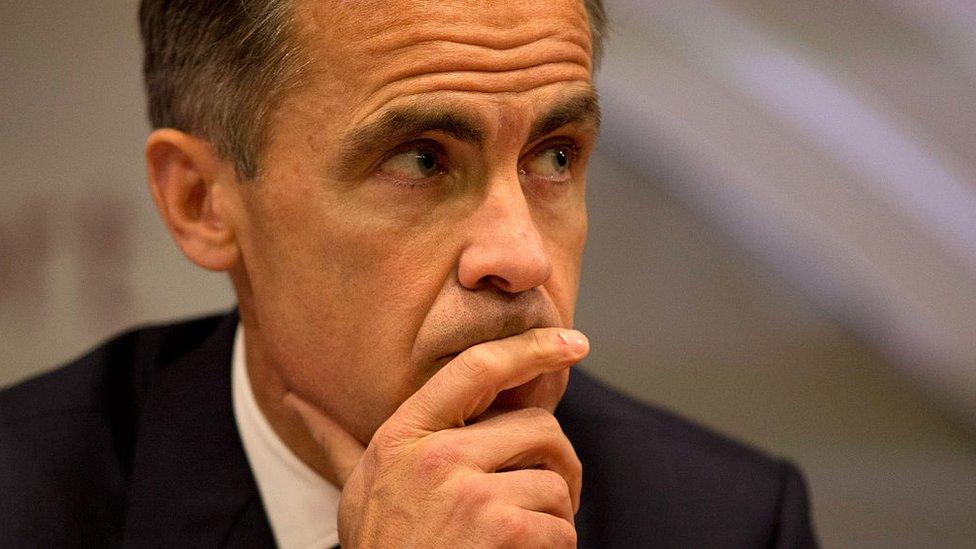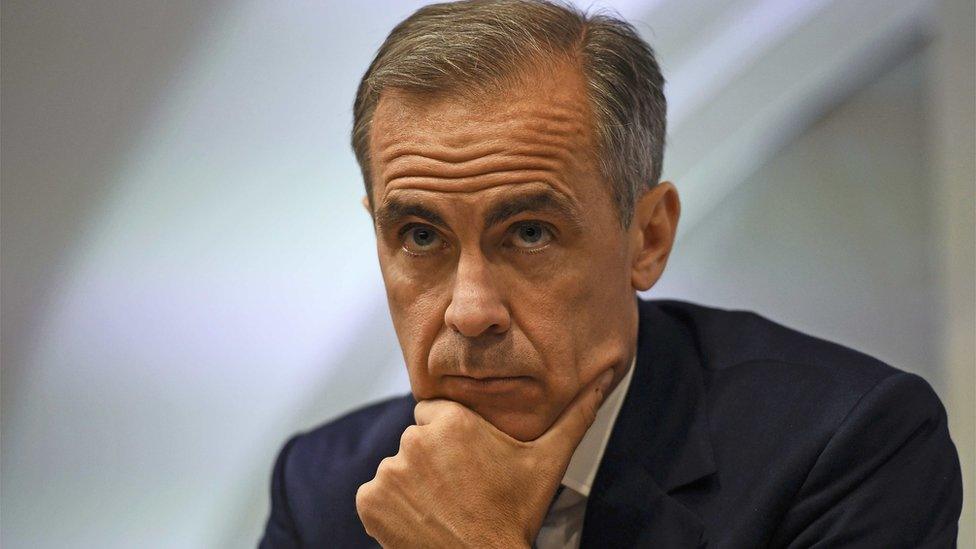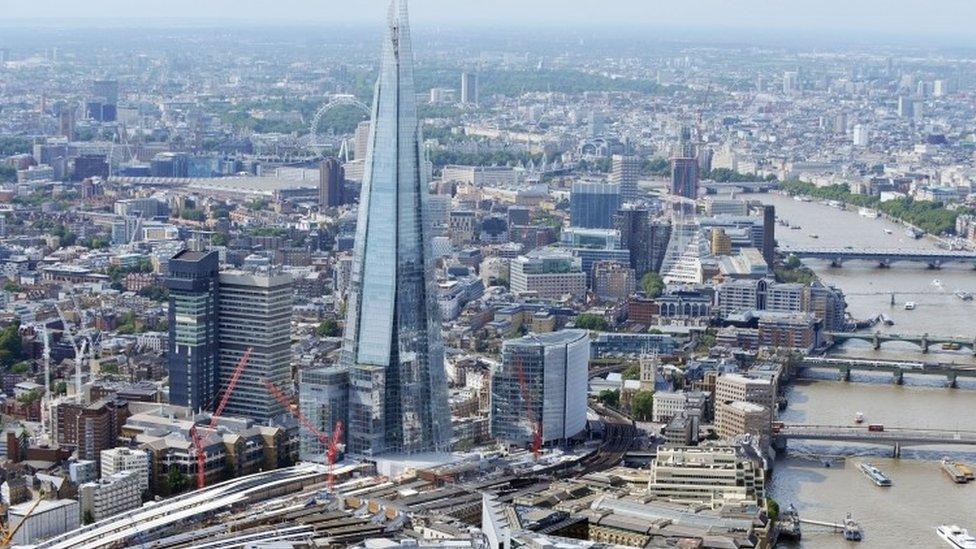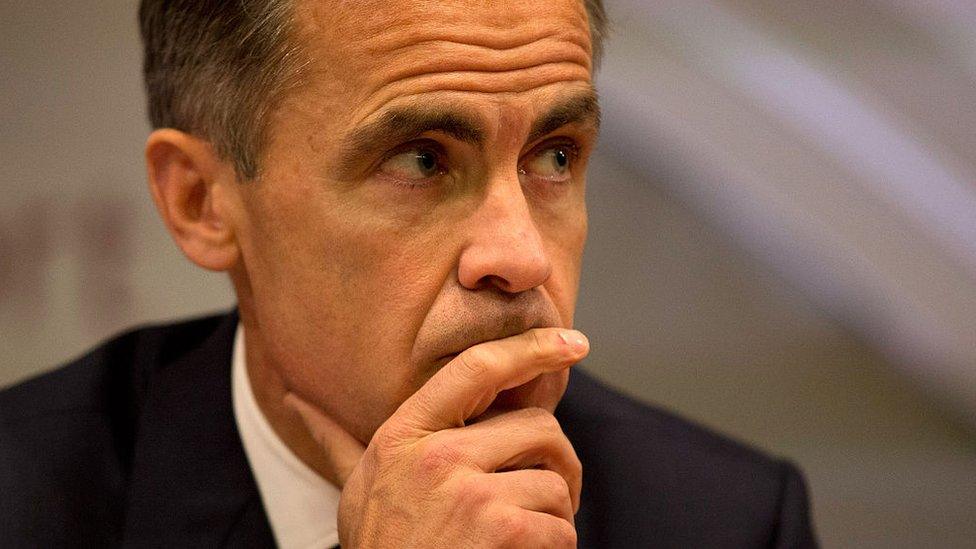Carney: Brexit risks now lower
- Published

The immediate risk posed by Brexit to the UK economy has declined, the governor of the Bank of England has told MPs.
Mark Carney said that action by the Bank before and after the vote to leave the European Union had reduced the danger to the country's financial stability.
He added, however, that the overall level of risk was still "elevated".
The risk was greater for continental Europe than for the UK, he said.
The governor also told members of the Treasury Select Committee that a period of transition was "highly advisable".
"If there is not such a transition put in place, in our view it will have consequences. We will work to mitigate those consequences as much as possible," he said.
Mr Carney said that the UK should concentrate on stable access to financial markets after Brexit. The financial services industry could suffer "outsize" consequences from losing only some of its access.
He also expressed the belief that it would not only be possible, but desirable for the UK to remain part of the EU mechanisms that make financial rules.
He said the EU and the UK were starting from the position of having the same rules. The regulators know each other, he added, and it is a "tightly wound ecosystem".
Improved forecasting
In the face of questions from Conservative MP Jacob Rees-Mogg, Mr Carney insisted the bank had identified the risk to the financial sector from the Brexit vote "correctly".
Last week, the Bank of England's chief economist, Andrew Haldane, admitted that some criticisms of economic forecasts about the immediate impact of a Brexit vote were justified.
Mr Carney told the committee that economic forecasting had improved since the financial crisis, by being more pessimistic.
"As you'd expect a bunch of dour central bankers to be, we're focused on the downside and less focused on how everything could turn out well, but what could go really wrong... and where can we potentially mitigate that.
"We do have to ask ourselves continually what could go wrong. We don't have to see a ghost behind every corner, but we do have to ask ourselves what could go wrong."
Jenga game
Mr Carney agreed with the chairman of HSBC that the financial structure of the City was like a Jenga tower. Giving evidence to the Treasury Select committee on Tuesday on the effect of the move towards Brexit, Douglas Flint suggested that when blocks are removed, the impact is hard to predict.

"It's a decent analogy," said Mr Carney, "just like when you start Jenga, and you start early on, there's some pretty obvious pieces that you can start taking out without really imperilling the tower."
- Published7 September 2016

- Published10 January 2017

- Published31 October 2016
